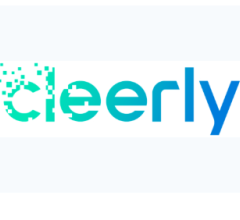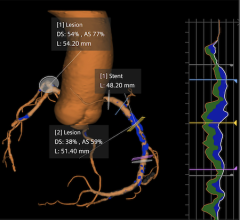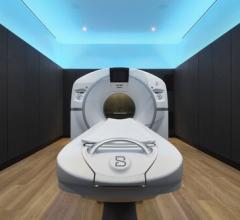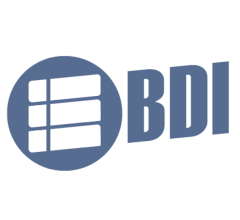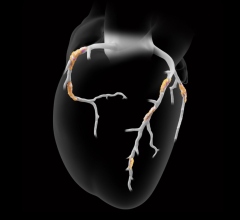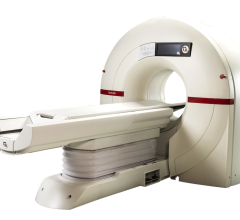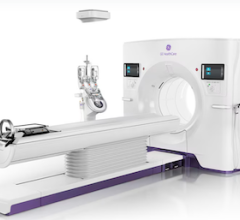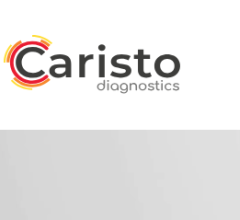
Daniel S. Berman, M.D., the studys principal investigator and chief of Cardiac Imaging at Cedars-Sinais S. Mark Taper Foundation Imaging Center in Los Angeles, Calif.
September 30, 2009 – A simple, noninvasive test appears to be an effective screening tool for identifying patients with silent heart disease who are at risk for a heart attack or sudden death. Coronary artery calcium scans can be performed without triggering excessive additional testing and costs, according to the multicenter EISNER (Early Identification of Subclinical Atherosclerosis by Noninvasive Imaging Research) study, led by investigators at the Cedars-Sinai Heart Institute. The findings appear in today’s issue of the Journal of the American College of Cardiology.
Coronary artery calcium scans that detect plaque in the coronary arteries have been shown to be more effective than standard cholesterol and blood pressure measurements in identifying patients who are most vulnerable to heart disease. Currently, these scans are not covered by private insurance carriers, in part because of concerns that detection of low levels of cardiovascular disease will result in unnecessary and expensive further testing, including exercise imaging and invasive cardiac catheterization procedures.
“Over half of patients who suffer heart attacks have no warning that they have heart disease until the heart attack occurs. If we knew the patients were at risk, current treatments could prevent the majority of these unnecessary events. We had to address the concerns about unnecessary testing and costs related to this potentially lifesaving procedure,” said Daniel S. Berman, M.D., the study’s principal investigator and chief of cardiac imaging at Cedars-Sinai’s S. Mark Taper Foundation Imaging Center in Los Angeles, Calif.
In the EISNER study, supported by The Eisner Foundation, researchers performed coronary calcium scans on 1,361 volunteers at intermediate risk for coronary artery disease, and followed them over a four-year period, from May 2001 to June 2005. The objective was to determine the relationship between coronary artery calcium scores and subsequent cardiac events and to evaluate the performance of additional cardiac diagnostic testing. Coronary artery calcium scores of 0 indicate no plaque, 1-9 minimal, 10-99 mild, 100-399 moderate, 400-999 extensive, and 1,000 or more very extensive plaque.
Coronary artery calcium scores varied widely but the vast majority of the patients had low scores. More than half — 56.7 percent of subjects -- had scores of less than 10, and only 8.2 percent had scores higher than 400. There was a strong relationship between the coronary calcium scores and subsequent cardiac events. The unique finding of the EISNER study was that there was a marked difference in the number, type and frequency of medical tests and costs given a subject’s coronary artery calcium score. Additional stress testing was infrequent and related costs were low among subjects with low coronary artery calcium scores. Both rose progressively as the coronary artery calcium score increased, particularly in the patients at highest risk—those with scores of greater than 1,000—found in only 2.2 percent of subjects (31). Importantly, catheter-based invasive coronary angiography was performed exclusively among subjects with high coronary artery calcium scores. And even then, only 19.4 percent of participants who were in the highest risk category underwent this expensive procedure associated with a small but definite risk.
Recent evidence has demonstrated that screening with coronary artery calcium is a better prognosticator of risk than the Framingham Risk Score — the traditional way of assessing risk based on blood testing and blood pressure — in middle aged and elderly patients. Yet controversy surrounds expansion of cardiac screening to include coronary calcium scanning imaging because of concerns that the extra costs may not outweigh the benefits. The findings of the EISNER study, the researchers note, is the first direct evidence that coronary artery calcium scanning could be an acceptable cost-effective screening test for coronary artery disease, since it is able to identify high risk subgroups in need of aggressive medical treatment, and patients who undergo additional testing constitute only a small fraction of the screened population.
The study was funded by a grant from The Eisner Foundation, a private philanthropy in Los Angeles, Calif.

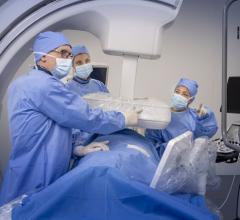
 February 02, 2026
February 02, 2026 
